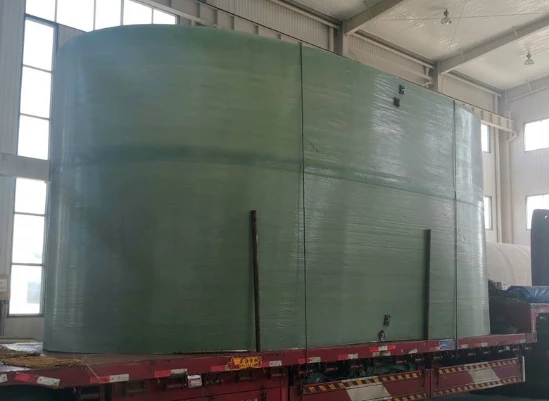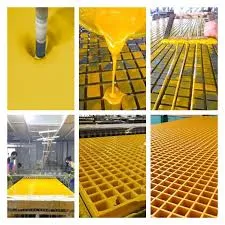
-
 Afrikaans
Afrikaans -
 Albanian
Albanian -
 Amharic
Amharic -
 Arabic
Arabic -
 Armenian
Armenian -
 Azerbaijani
Azerbaijani -
 Basque
Basque -
 Belarusian
Belarusian -
 Bengali
Bengali -
 Bosnian
Bosnian -
 Bulgarian
Bulgarian -
 Catalan
Catalan -
 Cebuano
Cebuano -
 China
China -
 China (Taiwan)
China (Taiwan) -
 Corsican
Corsican -
 Croatian
Croatian -
 Czech
Czech -
 Danish
Danish -
 Dutch
Dutch -
 English
English -
 Esperanto
Esperanto -
 Estonian
Estonian -
 Finnish
Finnish -
 French
French -
 Frisian
Frisian -
 Galician
Galician -
 Georgian
Georgian -
 German
German -
 Greek
Greek -
 Gujarati
Gujarati -
 Haitian Creole
Haitian Creole -
 hausa
hausa -
 hawaiian
hawaiian -
 Hebrew
Hebrew -
 Hindi
Hindi -
 Miao
Miao -
 Hungarian
Hungarian -
 Icelandic
Icelandic -
 igbo
igbo -
 Indonesian
Indonesian -
 irish
irish -
 Italian
Italian -
 Japanese
Japanese -
 Javanese
Javanese -
 Kannada
Kannada -
 kazakh
kazakh -
 Khmer
Khmer -
 Rwandese
Rwandese -
 Korean
Korean -
 Kurdish
Kurdish -
 Kyrgyz
Kyrgyz -
 Lao
Lao -
 Latin
Latin -
 Latvian
Latvian -
 Lithuanian
Lithuanian -
 Luxembourgish
Luxembourgish -
 Macedonian
Macedonian -
 Malgashi
Malgashi -
 Malay
Malay -
 Malayalam
Malayalam -
 Maltese
Maltese -
 Maori
Maori -
 Marathi
Marathi -
 Mongolian
Mongolian -
 Myanmar
Myanmar -
 Nepali
Nepali -
 Norwegian
Norwegian -
 Norwegian
Norwegian -
 Occitan
Occitan -
 Pashto
Pashto -
 Persian
Persian -
 Polish
Polish -
 Portuguese
Portuguese -
 Punjabi
Punjabi -
 Romanian
Romanian -
 Russian
Russian -
 Samoan
Samoan -
 Scottish Gaelic
Scottish Gaelic -
 Serbian
Serbian -
 Sesotho
Sesotho -
 Shona
Shona -
 Sindhi
Sindhi -
 Sinhala
Sinhala -
 Slovak
Slovak -
 Slovenian
Slovenian -
 Somali
Somali -
 Spanish
Spanish -
 Sundanese
Sundanese -
 Swahili
Swahili -
 Swedish
Swedish -
 Tagalog
Tagalog -
 Tajik
Tajik -
 Tamil
Tamil -
 Tatar
Tatar -
 Telugu
Telugu -
 Thai
Thai -
 Turkish
Turkish -
 Turkmen
Turkmen -
 Ukrainian
Ukrainian -
 Urdu
Urdu -
 Uighur
Uighur -
 Uzbek
Uzbek -
 Vietnamese
Vietnamese -
 Welsh
Welsh -
 Bantu
Bantu -
 Yiddish
Yiddish -
 Yoruba
Yoruba -
 Zulu
Zulu
FRP Grating Lightweight & Corrosion-Resistant Fiberglass Floor Grating
- Introduction to FRP Grating and Its Core Advantages
- Technical Specifications and Performance Metrics
- Comparing Leading Manufacturers in the Industry
- Customization Options for Diverse Applications
- Real-World Use Cases Across Industries
- Installation and Maintenance Best Practices
- Why FRP Grating Outperforms Traditional Materials

(frp grating)
Introduction to FRP Grating and Its Core Advantages
Fiberglass Reinforced Plastic (FRP) grating has emerged as a versatile solution for industrial and commercial flooring needs. Unlike traditional steel or aluminum, FRP grating combines corrosion resistance, high strength-to-weight ratios, and longevity. Industries such as chemical processing, marine, and wastewater treatment increasingly favor fiberglass floor grating due to its non-conductive properties and minimal maintenance requirements. For instance, studies show FRP products exhibit less than 0.5% degradation after 20 years in corrosive environments, outperforming steel by over 300% in lifespan.
Technical Specifications and Performance Metrics
FRP grating is engineered to meet rigorous standards, including ASTM E84 for fire resistance and ISO 14125 for load-bearing capacity. Key technical advantages include:
- Load capacity: Up to 1,500 lbs per square foot (PSF) for heavy-duty applications.
- Thermal stability: Performs between -40°F and 180°F without warping.
- Slip resistance: Meets OSHA requirements with a coefficient of friction (COF) ≥0.8.
These metrics make strongwell grating a preferred choice for industries prioritizing safety and durability.
Comparing Leading Manufacturers in the Industry
| Manufacturer | Load Capacity (PSF) | Corrosion Resistance Rating | Weight (lbs/sq ft) | Price Range ($/sq ft) |
|---|---|---|---|---|
| Strongwell | 1,500 | Class A | 3.2 | 25-40 |
| Fibergrate | 1,200 | Class B | 3.5 | 22-35 |
| Bedford | 1,000 | Class B | 4.0 | 20-30 |
Customization Options for Diverse Applications
FRP grating can be tailored to specific project requirements. Customization parameters include:
- Mesh size: Ranging from 1"x1" to 4"x4" for varying load and drainage needs.
- Surface texture: Grit-coated or smooth finishes for slip resistance.
- Color coding: UV-stable pigments for hazard identification or aesthetic alignment.
For example, a petrochemical facility recently deployed yellow-colored frp grating
with 2"x2" mesh to enhance safety in high-traffic zones.
Real-World Use Cases Across Industries
Case studies highlight FRP's adaptability:
- Chemical Plants: Replaced steel grating in a sulfuric acid storage area, reducing replacement costs by 60% over 5 years.
- Offshore Platforms: Installed 10,000 sq ft of fiberglass floor grating with a 30-year anti-corrosion warranty.
- Food Processing: Utilized antimicrobial FRP panels to meet FDA hygiene standards.
Installation and Maintenance Best Practices
Proper installation ensures optimal performance. Key steps include:
- Surface preparation: Clean substrates to prevent debris-induced stress.
- Fastening: Use corrosion-resistant clamps or adhesives compatible with FRP.
- Inspection: Conduct bi-annual checks for debris buildup or surface wear.
Maintenance costs average $0.10/sq ft annually, compared to $0.50/sq ft for painted steel.
Why FRP Grating Outperforms Traditional Materials
In direct comparisons, strongwell grating demonstrates a 40% lower total cost of ownership versus steel over 25 years. Its non-conductive nature eliminates grounding risks, while UV-stabilized formulations prevent fading. As industries prioritize sustainability, FRP’s recyclability and energy-efficient production further solidify its position as the future of industrial flooring solutions.

(frp grating)
FAQS on frp grating
Q: What is FRP grating and its primary benefits?
Q: What is FRP grating and its primary benefits?
A: FRP grating is a fiberglass-reinforced plastic composite material used for structural platforms. It offers corrosion resistance, lightweight strength, and non-conductive properties, making it ideal for harsh environments.
Q: How does fiberglass floor grating compare to traditional materials?
Q: How does fiberglass floor grating compare to traditional materials?
A: Unlike steel or concrete, fiberglass floor grating resists rust, chemicals, and moisture. It is lighter, easier to install, and requires minimal maintenance over time.
Q: What industries commonly use Strongwell grating?
Q: What industries commonly use Strongwell grating?
A: Strongwell grating is widely used in oil and gas, water treatment, and chemical plants. Its durability and corrosion resistance suit demanding industrial and marine applications.
Q: Can FRP grating support heavy loads safely?
Q: Can FRP grating support heavy loads safely?
A: Yes, FRP grating is engineered for high load-bearing capacity. Custom designs from brands like Strongwell ensure compliance with safety standards for pedestrian and vehicular traffic.
Q: How to install fiberglass floor grating correctly?
Q: How to install fiberglass floor grating correctly?
A: Ensure proper alignment and secure edges with corrosion-resistant fasteners. Follow manufacturer guidelines for spacing and support structures to maximize longevity and performance.
Latest news
-
Other Products: Explore Our Diverse RangeNewsAug.07,2025
-
High-Efficiency Fans, Dampers & Demisters | Custom SolutionsNewsAug.06,2025
-
Precision Mandrels and Molds - Engineered SolutionsNewsAug.04,2025
-
Dual Laminate Products | Superior Corrosion ResistanceNewsAug.03,2025
-
Large Size Field Tanks with AI-Powered EfficiencyNewsAug.01,2025
-
Steps: Simple Solutions for Every ProcessNewsJul.30,2025









